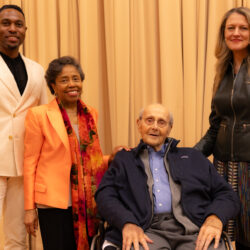
EXCLUSIVE: High school senior denied SAT score due to ID mix-up
It’s a case of mistaken identity that could cost a high school senior his future.
On May 5, Mordy Goldstein took his SAT reasoning test, which is required by many universities for college admissions, and began waiting for his score to arrive. But Goldstein never received a score and was instead told by the College Board and ETS, the organizations responsible for designing and administering the SAT, that his score would be cancelled because he used his Jewish name to register in advance for the exam, instead of Marc Goldstein, the name that appears on the identification he showed to be admitted to the SAT test site and the name he signed on his test.
Goldstein’s family contacted Assemblymember Rhoda Jacobs’ office in early August. Her staff spent weeks speaking with the ETS and College Board, providing the organizations with evidence to substantiate Goldstein’s identity, including a letter from the headmaster of his school and a photo from his yearbook in which he is identified by his Jewish name.
Leave a Comment
Leave a Comment


